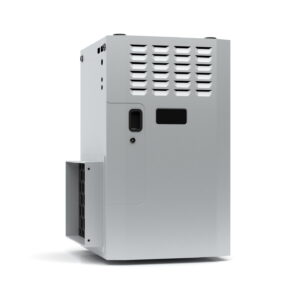When choosing a furnace or a heat pump in our area, there’s one important metric that usually drives the conversation—efficiency. With new SEER2 standards coming out for air conditioners and heat pumps, and with the rising costs of natural gas and electricity, the efficiency of a system is probably going to affect you more than anything else.
Purchasing a heating system is unique because it’s something that just isn’t a single purchase. A heater, just like a car, is going to cost you money throughout its lifespan to maintain and run. The more efficient your heating system in Hunterdon County, NJ is, the less you’ll have to pay over the next 10–15 years.
In order to make the most informed decision, we need to talk about efficiency ratings and the different methods we use to determine how efficient a heating system is.
The AFUE Rating of a Furnace
The AFUE rating of a furnace stands for the annual fuel utilization efficiency, and it’s a special kind of rating that differs from other electrical heating measurements. For furnaces, the most important metric to understand is how much of the fuel burned is turned into heat. This rating expresses itself as a percentage of the fuel, so the higher the number, the higher of a percentage of fuel is being turned into useful heat that you and your family can feel.
So, a furnace with an AFUE rating of 95 is extremely efficient, because that means 95% of the gas that’s being burned is turned into heat, and the remaining 5% turns into fumes like carbon dioxide and water vapors. For context, a wood-burning stove or fireplace has an AFUE of between 40–60%, meaning only about half of the wood burned turns into heat that you can feel. Yikes!
The HSPF Rating of a Heat Pump
The HSPF rating of a heat pump stands for the heating seasonal performance factor, a fancy way of saying “how much heat it makes while consuming a certain metric of electricity.” The higher the HSPF rating is on a heat pump, the more efficiently it will run.
This rating is important because it will give you a clue as to how much heating you can expect to see for a nominal electricity cost. Try looking into how expensive electricity is in your area and you’ll even have the numbers to determine how much you’ll likely pay by running a heat pump as your primary source of heat!
The SEER Rating of an AC
While we’re on this topic, let’s talk about air conditioners. While yes, they’re cooling systems and not the heating units that you’re relying on right now, they’re still valuable and need to be energy efficient in order to be worth the investment. This is where the SEER rating comes into play.
SEER stands for seasonal energy efficiency ratio, and it’s a complex equation that relates to how many British Thermal Units (BTUs) of cooling are created with a certain amount of electricity. The higher the SEER rating, the more efficient the system is and the better it cools for less energy. ENERGY STAR-certified systems will have a higher SEER rating in order to qualify for that label, so keep your eyes peeled for that.
To invest in a new, high-efficiency system contact Schaible’s Plumbing & Heating Inc.

